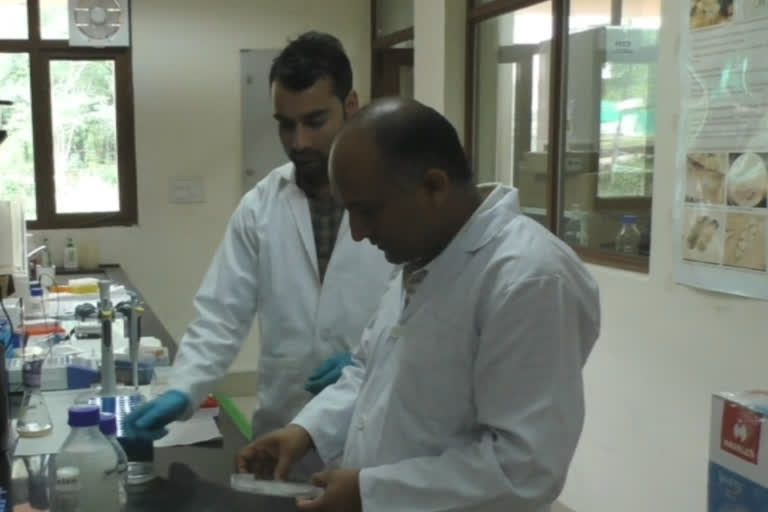Palampur (HP): At a time when India is vying to be plastic-free, scientists at the Institute of Himalayan Bioresource Technology Palampur have identified microbes that can offer a sustainable alternative.
The microbes, which were found at altitudes of over 3000 metres in the Himalayas, synthesise their own bioplastic, which degrades on its own after a period of time
"Plastic is an integral part of our lifestyle, but it also causes environmental pollution. The main reason why plastic is a problem in India and the entire world, is that it is non-biodegradable," Institute Director Dr Sanjay Kumar said, advocating for bioplastic.
Scientists of the institute found that the microbes produce bioplastic close to 70 per cent of their dry cell weight, he added.
However, the specialty of the bioplastic is that it disintegrates itself the moment it comes in contact with contaminated liquids.
This makes the bioplastic the perfect option for packing perishable food items like milk, bread, chips, etc.
Kumar added that an added advantage of using the bioplastic would be that it would disintegrate itself on being dumped in drains.
The scientists hope to bring the bioplastic in the markets soon, so that it becomes a viable alternative to single-use plastic.
Dr Dharm Singh, a senior scientist said that conventional plastic also had other negative ramifications, like entering our systems through the food we eat, which often comes packed in plastic. He said bioplastic is a great alternative taking this into account as well.
Also, read: Maharashtra govt to build houses for Mumbai's 'dabbawalas'



